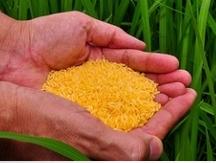
Dr. Alan Moghissi of the Potomac Institute for Policy Studies (and former chairman of the ACSH Board of Directors) and colleagues cogently reviewed the evolution of agricultural development. This evolution depended on first, the availability of plants with desirable traits, second, the availability of cross breeding plants to increase agricultural production, and finally huge advances in molecular biology, which allowed the application of genetic engineering to agricultural processes.
Moghissi and co-authors use the development of Golden Rice, which has been genetically engineered to provide beta-carotene, a precursor to vitamin A, as a clear example of the progress of agricultural technology. The authors dissect the claims espoused by those opposing the testing and application of GE technology, as exemplified by opposition to Golden Rice, and find that these are without merit.
The WHO estimates that about 250,000 to 500,000 vitamin A deficient children go blind each year and half of those children die within 12 months of going blind. However, the anti-biotech crowd continues to fight against the introduction of this revolutionary genetically engineered product.
As ACSH s Dr. Ruth Kava has said in the past, The stance against golden rice by anti-GMO activists is simply reprehensible. There is no good reason to fight the introduction of this GMO product or any other into the world s food supply. In my opinion, these activists are responsible for untold misery and death by instigating fear-driven destruction of test plots of this potentially life-saving product. Hopefully this addition to the literature will help to sway those opposing this life-saving technology.
For more information about the use of GE (aka GM) technology in agriculture, see ACSH s publication, Food and You, available here. For a 2013 opinion piece on this subject by ACSH s Dr. Gil Ross, see here.


